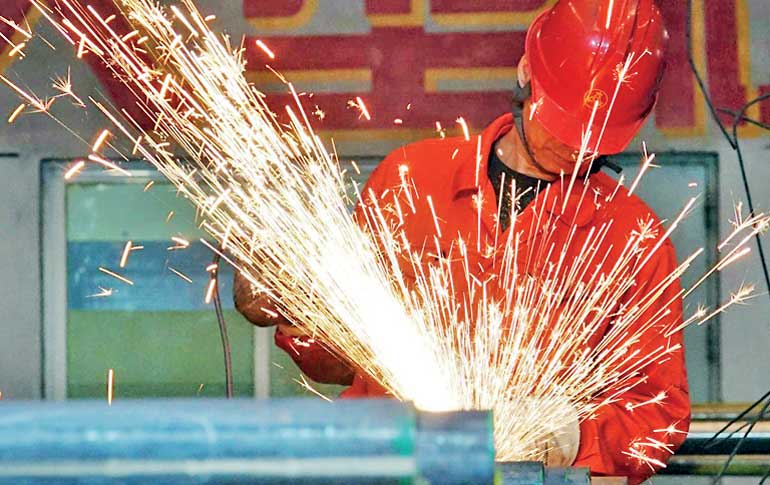Sunday Feb 22, 2026
Sunday Feb 22, 2026
Tuesday, 3 April 2018 00:00 - - {{hitsCtrl.values.hits}}

Beijing (Reuters): China’s manufacturing activity expanded at its weakest pace in four months in March as export demand faltered, prompting companies to shed staff more quickly as they looked to cut costs, a private survey showed yesterday (2 April).
The Caixin/Markit Manufacturing Purchasing Managers’ index (PMI) fell to 51.0 in March from February’s 51.6, countering economists’ expectations for a slight uptick to 51.7.
While the index remained above the 50-point mark that divides growth from contraction on a monthly basis, it was the weakest reading since November 2017 and signalled only a marginal improvement in operating conditions at the end of the first quarter.
The findings contrasted with official data on Saturday (31 March), which showed manufacturing growth picked up more than expected in March, in response to stronger domestic and overseas demand. The two reports often diverge, possibly due to differences in the number and type of businesses surveyed. The Caixin PMI, which tends to focus on smaller firms, suggested output and new orders grew only modestly in March, with growth in export orders slumping to a 10-month low even as fears grow of a possible trade war between the United States and China. The survey cited subdued foreign demand, and did not mention if there had been any impact yet from escalating trade tensions. The Trump administration slapped hefty tariffs on steel and aluminium imports last week and then targeted China specifically by announcing plans for additional tariffs of up to $60 billion of Chinese goods, which are expected to focus largely on its tech and telecommunications products.
A resurgent yuan could also be weighing more on smaller exporters. The Chinese currency has gained more than 3% against the US dollar this year, on top of a 6.7% rise in 2017. Chinese manufacturers also continued to reduce headcounts in March to cut costs, with the rate of job shedding still modest but the quickest since August 2017, the survey showed. “Overall, the manufacturing PMI reading in March showed that demand was not as strong as expected, leading to lower willingness of manufacturers to produce and restock,” CEBM Group Macroeconomic Analysis Director Zhengsheng Zhong said in a note accompanying the release. “However, the ability of manufacturers to make a profit was beefed up by the stable increase in new orders and the much slower jump in input costs.”